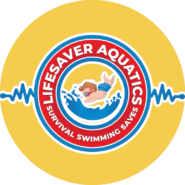Services
what we do
Drowning is the LEADING cause of ACCIDENTAL death in children ages 1- 4 years of age and it only takes a moment. Give your child a layer of protection that will last them a lifetime and allow them to have a future.
1
Survival Float (6 mo. +)
(Children 6mo.-18mo.) will learn the fundamental skill of rolling onto their backs to float, rest and breathe. The focus at this age is to teach infants and toddlers who may not be walking yet to maintain a floating position until help arrives.
Timeline: The typical time frame an infant will take to learn this is approximately 15 to 20 lessons that are 10 minutes in length. Lessons run 4 days per week consecutively.
2
Survival Swim-Float-Swim (2 -6 years)
(Children ages 1.5 -6 years that can walk) will learn the skills of breath control, to swim with their faces in the water then to roll over onto their back when they need to breathe. They will be able to rest on their back and then resume swimming and roll to their backs when breaths are needed.
Timeline: Little ones ages 16mo.-3 years will typically learn this skill set in approximately 24-28 lessons, which equates to approximately (5-6 weeks consecutively) for 10 minutes in length. For children ages 3-6 years of age the timeframe is shorter and will take approximately 12-16 lessons for 3-4 weeks consecutively with a 10 minute lesson daily 4 days per week.
3
Maintenance/Refresher Lessons
Maintenance or refresher survival swim lessons play a crucial role in ensuring that young children maintain their aquatic achievements as they grow. Children grow at a rapid rate and develop new physical, emotional and developmental abilities. These changes they undergo not only make them capable of achieving more in the water, but may also alter how they maintain their float. These lessons also assist with prevention of picking up bad habits.
4
Adaptive Lessons
Adaptive swimming is a specialized program designed to accommodate individuals with disabilities or special needs. These lessons focus on creating a safe, supportive environment with a great deal of patience and specialized techniques utilized to help develop swimming skills for those who may need alternative techniques utilized in order to allow them to achieve the same goals as typical survival swim lessons in a manner that is comfortable for them to learn in.
